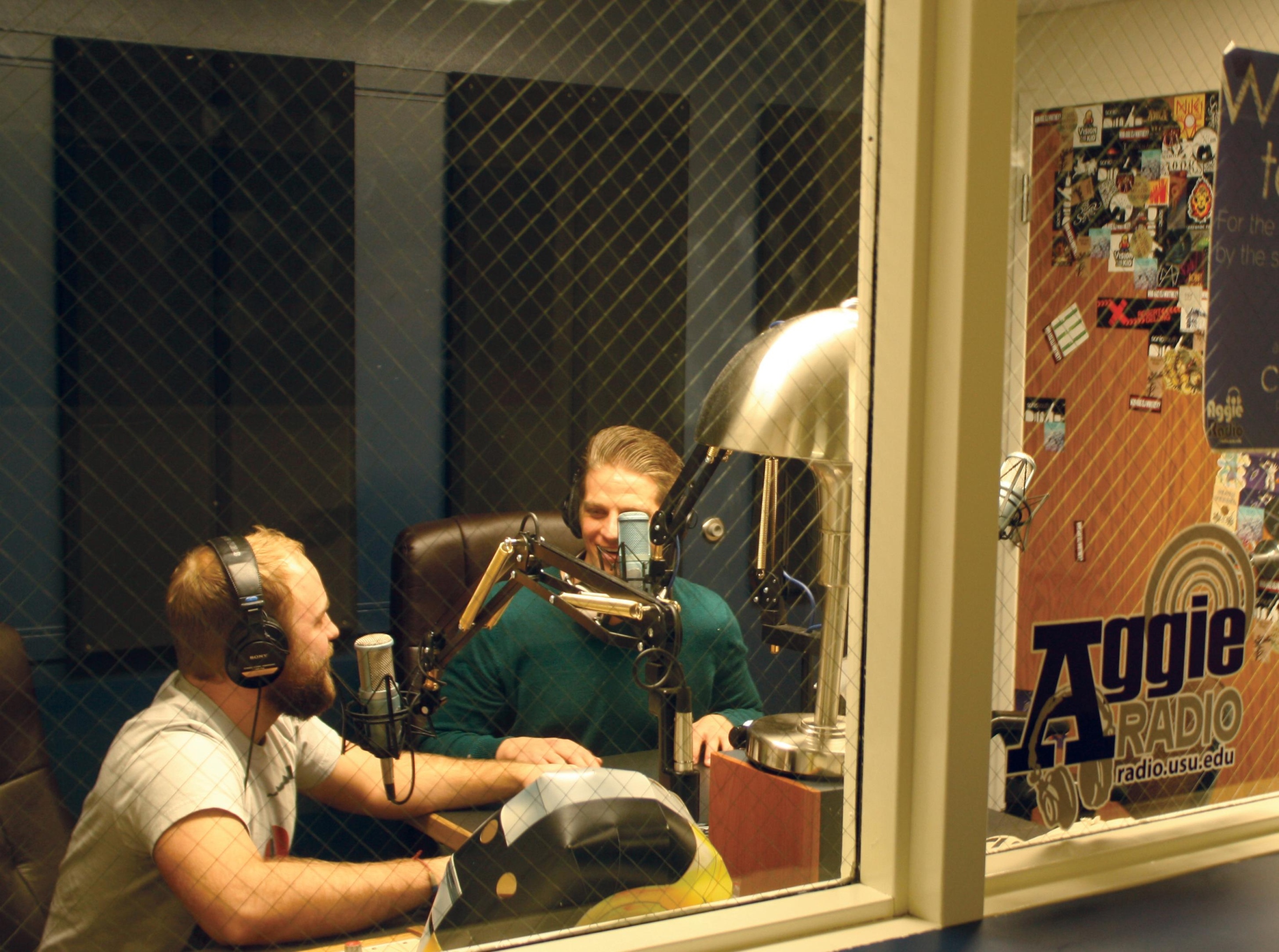Aggie Radio hopes to make waves in the valley
Aggie Radio, the student-run radio station on campus, applied for a license to become a fully operating FM station earlier this year. This would allow the station to broadcast to all of Cache Valley.
According to the Federal Communications Commission, in order to become a FM station, Aggie Radio must go through an application process before it’s assigned a specific bandwidth.
If the license application does get approved, the radio station will still have to have a frequency and bandwidth selected before the station can fully operate. Brady Stanger, station manager for Aggie Radio, said even though the station will only be heard in the Cache Valley, it will be a tremendous success for the station to operate at full power.
“Being able to go from a small online radio station to broadcasting valley-wide will be the biggest success for us,” Stanger said.
Both current and former members of Aggie Radio said this is something the station has wanted for a long time and is something that will be beneficial for it. Becky Eisenhower, operations director for Aggie Radio, said having the station broadcast over the airwaves instead of online can give it a huge boost.
“It would be a pretty positive boost to be where we want to be,” Eisenhower said. “A lot of people I have talked to said they would listen more if they could listen to it while in town.”
But in order to become a FM station, the frequency and bandwidth a station chooses must not interfere with another bandwidth or frequency from any other station or the FM license will not be approved. Friend Weller, chief engineer at Utah Public Radio, said this can be a common problem for stations applying for licenses.
“There are other radio stations that use frequencies as well, so it’s important to not get them mixed up,” Weller said.
Aggie Radio started in 2007 and hosts programs and shows daily. It broadcasts from the first floor of the Taggart Student Center. With the station now in its seventh year of operation, Stanger said it is more important than ever to eliminate mistakes from the process and make sure the license can be approved.
“We have had a few bumps in the road, but that’s all part of the process,” Stanger said.
If the license and bandwidth are approved, the station will be broadcasting with a full FM frequency by the end of the year. Eisenhower said the disk jockeys are a lot of fun and they really bring a lot to the station.
“They are constantly coming up with new ideas,” Eisenhower said. “There is also a ton of diversity within the station, so that makes it more interesting and fun.”
With the station on the verge of being able to broadcast at full frequency, Stanger said this would be the best opportunity for the station itself to become more well known.
“If it wasn’t for the tremendous support, especially from (director of Student Services) James Morales, there is no way we would be in this position,” Stanger said.
–connor.comeau@aggiemail.usu.edu
Twitter: @Connor_Comeau

